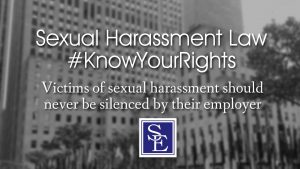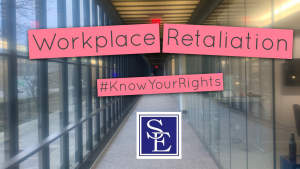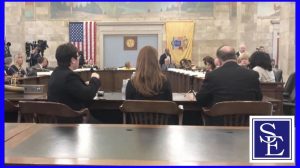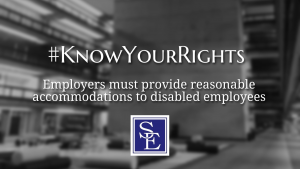New York Governor Andrew Cuomo has been under fire since March 2021, having been accused by over a half-dozen women of sexual harassment, including staffers who say the harassment took place at work. Some are surprised by the allegations given that Governor Cuomo has publicly been seen as one of the nation’s leaders in protecting the rights of women and fighting workplace sexual harassment.
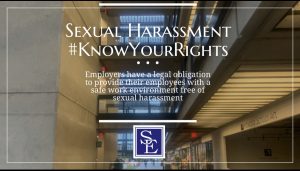 On August 12, 2019, Governor Cuomo signed legislation under the New York State Human Rights Law that made that state’s sexual harassment law one of the strongest in the country. The legislation included extending the statute of limitations for sexual harassment claims from one year to three years, and rejecting the requirement found in other states, including New Jersey, that the harassing conduct must be severe or pervasive to be unlawful. These protections were in addition to the laws that Governor Cuomo signed in April 2019 as part of his 2019 Women’s Agenda. That agenda required all state contractors to affirm that they have a sexual harassment policy and that all employees have received training; prohibited employers from imposing mandatory arbitration to deal with sexual harassment claims and limited non-disclosure agreements to only those situations in which they were expressly requested by the harassment victim; required public employees found to have intentionally sexually harassed someone to reimburse the state for any judgment against it; and extended the law’s protections to contractors, subcontractors, vendors, consultants and other non-employees providing services in the workplace.
On August 12, 2019, Governor Cuomo signed legislation under the New York State Human Rights Law that made that state’s sexual harassment law one of the strongest in the country. The legislation included extending the statute of limitations for sexual harassment claims from one year to three years, and rejecting the requirement found in other states, including New Jersey, that the harassing conduct must be severe or pervasive to be unlawful. These protections were in addition to the laws that Governor Cuomo signed in April 2019 as part of his 2019 Women’s Agenda. That agenda required all state contractors to affirm that they have a sexual harassment policy and that all employees have received training; prohibited employers from imposing mandatory arbitration to deal with sexual harassment claims and limited non-disclosure agreements to only those situations in which they were expressly requested by the harassment victim; required public employees found to have intentionally sexually harassed someone to reimburse the state for any judgment against it; and extended the law’s protections to contractors, subcontractors, vendors, consultants and other non-employees providing services in the workplace.
The New York State Equal Employment Opportunity Handbook defines sexual harassment as “unwelcome conduct which is either of a sexual nature, or which is directed at an individual because of that individual’s sex when such conduct has the purpose or effect of unreasonably interfering with an individual’s work performance or creating an intimidating, hostile or offensive work environment, even if the reporting individual is not the intended target of the sexual harassment . . . Sexual harassment also consists of any unwanted verbal or physical advances, sexually explicit derogatory statements or sexually discriminatory remarks made by someone which are offensive or objectionable to the recipient, which cause the recipient discomfort or humiliation, or which interfere with the recipient’s job performance. . . . Quid pro quo sexual harassment occurs when a supervisor or other person with authority makes an employee’s submission to a sexual demand a condition of his or her employment. Sexual harassment need not be severe or pervasive to be unlawful, and can be any sexually harassing conduct that consists of more than petty slights or trivial inconveniences. It is not a requirement that an individual tell the person who is sexually harassing them that the conduct is unwelcome. In fact, the Human Rights Law now provides that even if a recipient of sexual harassment did not make a complaint about the harassment to the employer, the failure of the employee to complain shall not be determinative of whether the employer is liable.”
 New Jersey Employment Lawyers Blog
New Jersey Employment Lawyers Blog


